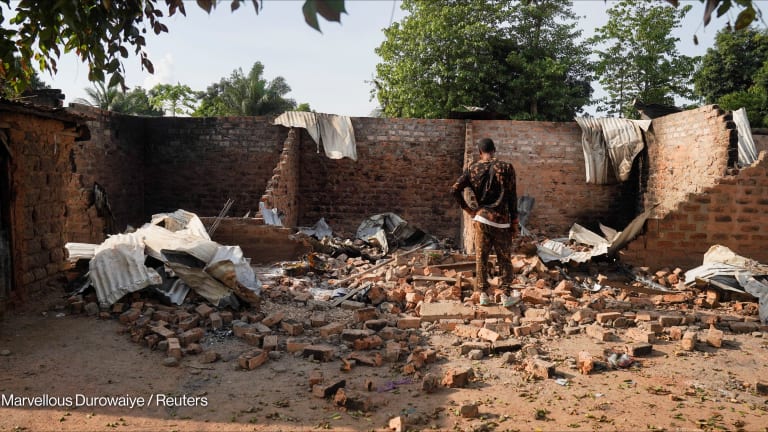
EDITOR’S NOTE: Democratic transitions are difficult and rarely linear, and there will inevitably be setbacks. But these are reasons to increase — not reduce — U.S. funding for democracy programs, writes David Stein, a policy associate at the U.S. Global Leadership Coalition.
With the first of the presidential primary debates behind us, one thing is certain: The debate over America’s role in the world is only just beginning.
With that in mind — and given the recent news that Russia decided to ban the National Endowment for Democracy’s activities in the country — let’s take a look at a few of the challenges and opportunities for U.S. global leadership.
In recent years, more than 90 countries have sought to institute laws to limit the activities of local civil society groups, including restricting their access to support from international organizations.
The U.S. Agency for International Development has been forced to end its democracy promotion activities in many countries, including Russia, Bolivia and Ecuador. During his trip to Africa just two weeks ago, President Barack Obama acknowledged the significant challenges facing democracy in Ethiopia, the continent’s second most populous nation.
At the same time, we must also recognize some remarkable progress. Take Nigeria, for example: Africa’s most populous nation and largest economy. In March, for the first time in Nigeria’s history and in its closest election to date, there was a peaceful transition of power between opposition candidates. This was particularly meaningful given that in the last national election in 2011, a disputed outcome resulted in violence that killed over 800 people.
Since Nigeria’s transition from military to civilian rule in 1999, American nonprofits like the National Democratic Institute and the International Republican Institute have been there. These groups, supported by the international affairs budget, work with Nigerian organizations to create confidence within the Nigerian electorate in the democratic process.
The work is not easy — the violence of 2011 shows that — but it is vital. As IRI President Mark Green, former ambassador to Tanzania, wrote, the recent election “underscores how small, but impactful U.S. taxpayer-funded programs can contribute to strengthening the democratic process in Nigeria and countries around the globe.”
We can also see a promising example of progress in North Africa, a region facing enormous challenges in so many countries. Tunisia — the birthplace of the Arab Spring — held credible democratic elections for parliament and president in 2014. NDI and IRI have been working in Tunisia for years, addressing issues like constitutional reform, freedom of the press, women’s rights, and monitoring the elections to ensure fairness and transparency.
Following the election, NDI President Ken Wollack said, “To all those who pronounce the end of democracy in this region, I urge you to visit Tunisia.”
Democratic transitions are difficult and rarely linear. There will inevitably be setbacks, even in countries like Nigeria and Tunisia that are seeing progress today. Because of this, the recent decline in U.S. funding for democracy programs is particularly concerning.
By supporting the citizens of these countries who are working to strengthen respect for human rights and make their governments more accountable, the United States is not only supporting like-minded allies, but promoting a more peaceful and prosperous world.
Edited for style and republished with permission from the U.S. Global Leadership Coalition. Read the original article.
Stay tuned to Devex for more news and analysis of U.S. aid, and subscribe to The Development Newswire to receive the latest from the world’s leading donors and decision makers — emailed to you FREE every business day.








